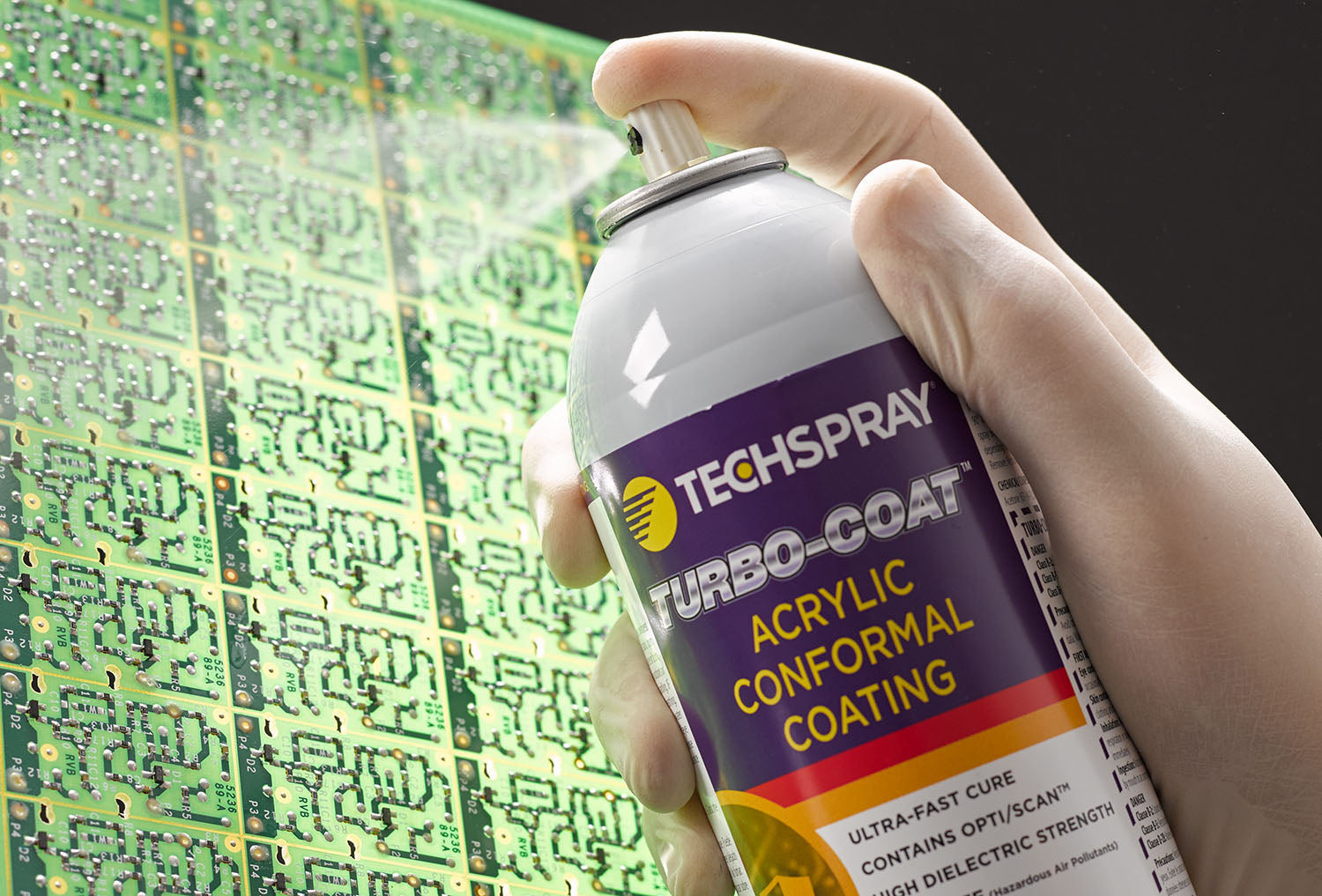Selecting the Right Conformal Coating

Conformal coating is a specialised polymeric film used to protect Printed Circuit Boards (PCBs) and electronic components against damage due to moisture, dust, chemical and temperature extremes. Additionally, it provides increased dielectric resistance and operational integrity.
WITH MANY TYPES OF CONFORMAL COATING TO CHOOSE FROM, HOW DO YOU SELECT THE RIGHT OPTION FOR YOUR PRODUCTION LINE?
It mainly depends on the type of protection required, followed by application method and ease of removal. Below are 6 main types of conformal coatings, each with its distinct advantages and disadvantages.
Types of Traditional Conformal Coating
 |
Acrylic Resin | Acrylic coatings can be considered basic entry-level protection, because they are economical and protect against a broad-level of contamination, but not best-in-class for any characteristic except possibly dielectric strength. |
| Silicone Resin | Silicone conformal coating provides excellent protection in a very wide temperature range and are commonly used in high humidity environments, like outdoor signages. Special formulations are available that can coat LED lights without color shift or reduction of intensity. | |
 |
Urethane Resin | Urethane conformal coating is commonly specified for aerospace applications where exposure to fuel vapors is a common concern. |
Types of Specialized Conformal Coating
 |
Epoxy Resin | Epoxy-based coatings are usually available as two‐part compounds and create a very hard coating. Epoxy coatings are common in potting compounds, which in contrast to conformal coatings, completely covers the electronics in a solid and level layer of material. |
 |
Parylene | Parylene conformal coatings is a unique type of coating applied by vapor phase deposition. Because of the vapor deposition method, parylene coatings can be applied very thin and still provide excellent circuit board protection. However, removal for rework is very difficult, requiring abrasion techniques, and without access to vapor phase deposition equipment, recoating with parylene is impossible. |
 |
Nano / Thin Film | A coating is dissolved in a fluorocarbon‐based carrier solvent and applied with a spray or dip method to create a very thin coat |
Pros and Cons of Each Conformal Coating
| Conformal Coating | Pros | Cons |
| Acrylic Resin |
|
|
| Silicone Resin |
|
|
| Urethane Resin |
|
|
| Epoxy Resin |
|
|
| Parylene |
|
|
| Nano / Thin Film |
|
|
Apart from coating types, the application methods are also important for determining the protection level of your PCBs. Find out the various methods of applying conformal coatings here.
Tokimeku provides Techspray conformal coating to Singapore, Malaysia, Philippines, Indonesia, Thailand and Vietnam. Shop now!
